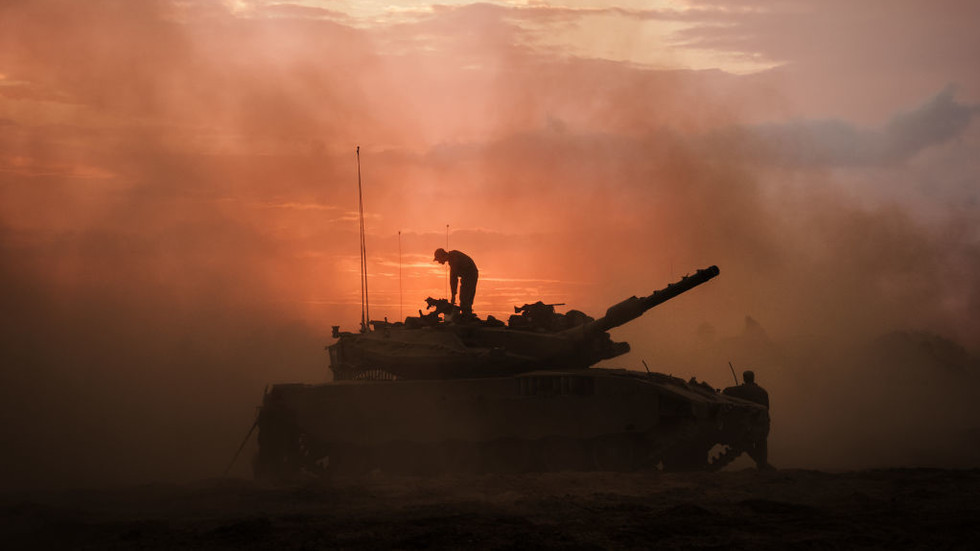On Sunday, a troubling incident unfolded when Israeli Defense Forces (IDF) tanks unlawfully entered a United Nations peacekeeping base (UNIFIL) in southern Lebanon, drawing widespread condemnation and raising concerns over the safety of UN personnel in the region. According to UNIFIL, the incursion occurred in Ramyah, located close to the Israel-Lebanon border, at approximately 4:30 a.m. While stationed peacekeepers were in shelters, two IDF Merkava tanks breached the main gate of the facility and requested that the base turn out its lights multiple times. The tanks remained within the base for around 45 minutes, leaving only after UNIFIL lodged protests through diplomatic channels, highlighting that their presence jeopardized the safety of the peacekeepers. Following their departure, an artillery barrage occurred nearby, resulting in the emission of irritant smoke that caused skin and gastrointestinal reactions among 15 UN personnel, despite their use of protective gear.
In response to the incident, the IDF stated that the tanks had inadvertently backed into the base while attempting to evacuate two wounded Israeli soldiers. They claimed that a smokescreen was deployed to facilitate their escape. The incident raises significant questions about the IDF’s operational conduct in sensitive areas where UN peacekeepers are stationed, especially since UNIFIL was established in 1978 with the goal of overseeing the withdrawal of Israeli troops to the delineated ‘blue line’. This line is meant to maintain peace and security in the volatile area, with UNIFIL currently comprising about 10,000 troops from around 50 nations, tasked with ensuring that neither Israeli forces nor the Lebanese militant group Hezbollah maintain a military presence in the buffer zone between the blue line and the Litani River.
The ongoing tensions between Israel and Hezbollah have escalated sharply in recent weeks, following an increase in IDF operations in southern Lebanon. Israel justified its military presence as part of a broader campaign against Hezbollah, which it accuses of undermining security in the region. Meanwhile, UNIFIL has expressed frustration regarding the deteriorating situation, reporting multiple instances where IDF troops have targeted their bases. These incidents have resulted in injuries to five peacekeepers, four of whom were harmed by direct Israeli fire. The situation poses a serious challenge to the mission of UNIFIL, as it strives to maintain peace amidst aggressive military engagements.
The UNIFIL’s position in southern Lebanon is further complicated by allegations from Israeli authorities that the peacekeeping force is ineffective in deterring Hezbollah, which has purportedly fortified its military capabilities in the area. Israeli Prime Minister Benjamin Netanyahu has publicly criticized UNIFIL for allegedly providing cover for Hezbollah’s operations, demanding the withdrawal of its troops from southern Lebanon. He warned that the longer UN forces remain, the greater the peril to their safety, suggesting that they become complicit in the threats posed by Hezbollah.
Following the Ramyah incident, UNIFIL reaffirmed its commitment to its mandate, categorically denouncing any breaches of international law and UN Security Council resolution 1701, which forbids UN personnel or regular Lebanese forces from engaging in military operations in the sensitive area. The resolution was designed to prevent further military conflict following the 2006 Lebanon War and underscores the importance of maintaining neutrality and safety in conflict zones. UNIFIL’s leadership has urged Israel to respect the boundaries established by international law, particularly in light of escalating tensions that threaten to undermine the fragile peace in southern Lebanon.
This recent sequence of events highlights the precarious nature of interactions between military forces and peacekeeping operations in conflict-prone areas. As the situation continues to evolve, the international community watches closely, calling for restrained actions from both Israeli forces and Hezbollah to avoid further escalation. The tension between military necessity and the protection of civilian life, as well as UN personnel, remains a critical concern that will require diplomatic intervention and dialogue to navigate effectively.

